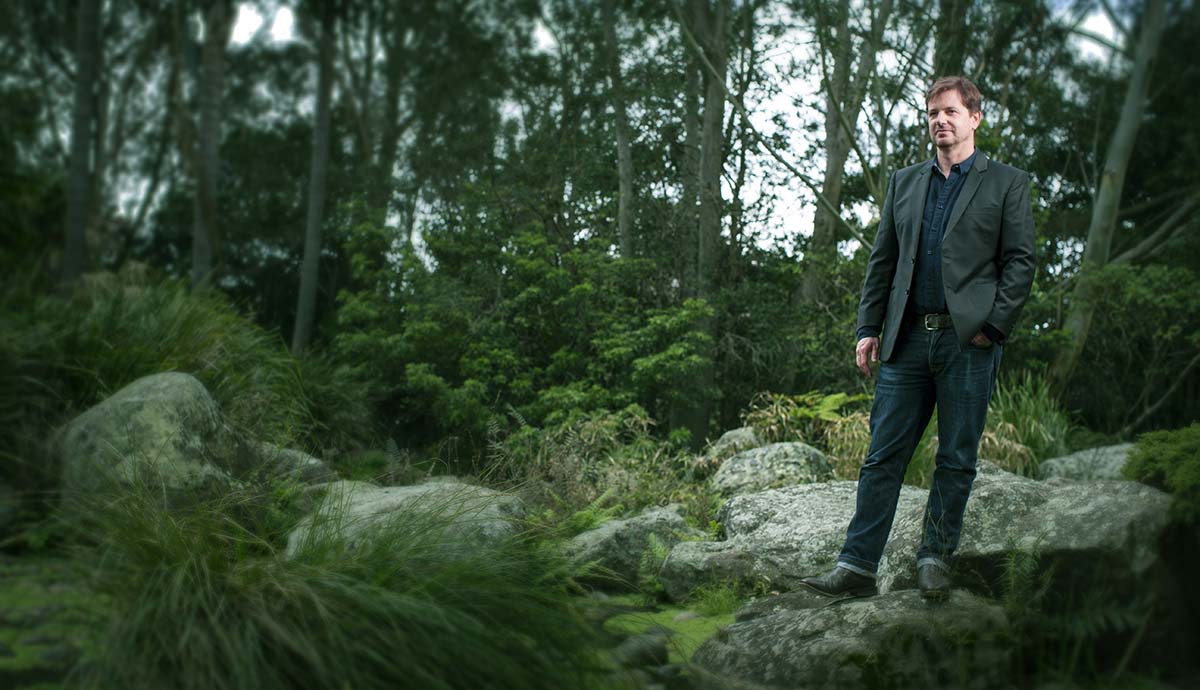November 28, 2017
Researchers tackle the world’s great challenges
Transforming Vulnerability Conference brings academics together to solve real-world problems
Wearable sensors to help keep older people healthy and independent in their own homes. A program for Indigenous children that strengthens their cultural connections and through that improves their health and lifts their academic results. Scientists, health practitioners, policy makers, engineers, business leaders, educators joining forces to tackle the potentially catastrophic threat of antimicrobial resistance.
The Transforming Vulnerability Conference will address issues as varied as the academic specialties of those addressing them: historians, psychologists and professors of law will rub shoulders with medical researchers, biologists and engineers; economists and geographers will compare notes with material scientists and robotics experts.
What they share is a commitment to tackling the world’s great challenges, and helping the most vulnerable, whether that’s vulnerable communities, vulnerable regions, vulnerable ecosystems or vulnerable industries.
The conference, from 30 November to 1 December at the University of Wollongong (UOW) main campus, brings together researchers working under UOW’s Global Challenges Program, along with colleagues and collaborators from across Australia and around the world.
Vulnerability is a recurring theme of our times, says Global Challenges Program Director Chris Gibson (pictured above).
“The Transforming Vulnerability Conference aims to stretch disciplinary boundaries and provide a platform for the most innovative thinkers to reflect on how we can transform the most vulnerable lives, communities, regional economies, coastal and marine ecosystems through challenge-led research,” Professor Gibson said.
“It aims to redefine the way we look at things and provide a platform to debate and discuss how we can approach the same challenge in a multitude of ways.”
The conference coincides with the launch of the McKinnon Walker Fellowship, and the inaugural Fellows – Professor Yoshitaka Iwasaki from University of Alberta, Canada; Professor Nicola Ansell, Brunel University London; Professor Peter Bridgewater, University of Canberra; and Dr Allan Rennie, University of Lancaster, UK –will each present a keynote address.
Professor Yoshitaka Iwasaki will also present a public lecture on the importance of leisure and recreation in transforming vulnerable lives.
All four McKinnon Walker Trust Fellows will also take part in a Q&A session with Professor Gibson on the topic, “What is vulnerability and how can we transform it?”
Other presentations include:
- Professor Sharon Robinson, from the School of Biological Sciences, on protecting biodiversity in the Antarctic from the effects of climate change
- Dr Stephen Hampton, from the Justice Health and Forensic Mental Health Network, on better healthcare for one of society’s most vulnerable groups: the incarcerated
- Dr Eduardo Pol, from the School of Accounting, Economics and Finance, on the robot economy and employment vulnerability
- Dr Leah Gibbs, from the School of Geography and Sustainable Communities, on shark hazard mitigation strategies, and their effects on humans and sharks
- Dr Javad Foroughi, from the Intelligent Polymer Research Institute, on using smart, wearable textiles to track and monitor the vital signs of police, firemen, military and on mining and industrial worksites
- Associate Professor Ping Yu, from the School of Computing and Information Technology, and Professor Wilf Yeo, from the School of Medicine and the Illawarra Health and Medical Research Institute, on designing a system to better manage the treatment of alcohol- or drug-affected patients at hospital emergency departments
- Dr Rahim Mutlu from the on the potential for using 3D printing to manufacture soft robotic prosthetic hands
ABOUT GLOBAL CHALLENGES
The University of Wollongong's Global Challenges Program is designed to encourage and develop creative and community-engaged research that will help drive social, economic and cultural change in our region, with the potential to be translatable across the globe.
The Program focuses on three Global Challenges – Living Well, Longer, Manufacturing Innovation, and Sustaining Coastal and Marine Zones – united by an overarching research goal of Transforming Lives and Regions.
Each Global Challenge involves collaboration between UOW researchers and business, government, community and other research organisations. Global Challenges articulates and pursues innovative solutions to major challenges, with a clear focus on the delivery and adoption of research outputs that have maximum impact in key areas of social, economic and community need.
ABOUT THE MCKINNON WALKER TRUST
The McKinnon Walker Trust was established through a $1.3-million personal gift from former University of Wollongong Vice-Chancellor Emeritus Professor Ken McKinnon AO and Ms Suzanne Walker.
Income generated from the endowment is to be used to support the “green sprouts” of new ideas, foster a culture of innovation and support excellence, and is disbursed annually at the Vice-Chancellor’s discretion.
